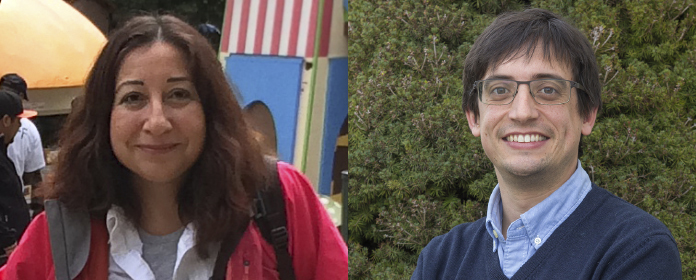Two researchers join the University of Navarra with Marie Curie grants, the European Commission's most prestigious fellowships
A Turkish woman from the University of Berkeley and a Spaniard from the University of Illinois will join Institute for Culture and Society and Cima, respectively.

Two researchers have received Marie Curie grants from the European Commission to develop projects at the University of Navarra. Thus, the Turkish Melike Akkaraca, from Turkey, will join campus as part of the Institute for Culture and Society (ICS), the research center in Humanities and social sciences; and the Spaniard Mikel Hernáez Arrazola will join the Cimathe research center in applied medicine.
Through the Marie Sklodowska-Curie Fellowships, the European Commission aims to contribute to the development of the research by promoting degree program professional development of talented researchers. These grants are among the most competitive and prestigious grants awarded by this European organization and are financed within the framework Program for the research and development Technology (Horizon 2020).
Emotions in Turkey's foreign policy towards the European UnionMelike Akkaraca holds a PhD and Master's Degree in European Law from Marmara University (Istanbul, Turkey). In addition, she holds two Master's degrees in International Office and Political Science (Marmara University) and in Legal Theory (European Academy of Legal Theory). She has been a lecturer and researcher at the University of İstanbul Kültür, Girne American University (Cyprus), Near East University (Cyprus) and since 2017 she is a visiting professor at the University of California - Berkeley (USA). At ICS she will be part of the project 'Public discourse', where she will develop the research 'Emotions in Turkey's foreign policy towards the European Union'.
This project seeks to understand Turkey' s foreign policy changes vis-à-vis the European Union (EU) over the last 20 years based on emotions as elements capable of creating identity discourses. The expert will study the rhetorical use of emotions in the speeches of leaders across the political spectrum. In this way, she will also be able to investigate the rise of populist movements in both Turkey and Europe.
New methods to understand changes in cancer cellsMikel Hernáez Arrazola is a Telecommunications Engineer and holds a PhD in Telecommunications from the University of Navarra(TECNUN). After his postdoctoral stay at Stanford University (USA), he joined the high school of Genomic Biology at the University of Illinois (USA) as director of Computational Biology. At the beginning of the year he joined Cima to develop the project 'Explaining transcriptional wiring in hematological malignancies through computational methods'.
His goal is to design computational methods (based on machine learning techniques) to understand the association of gene regulation with disease progression in hematological malignancies. Specifically, it seeks to find biomarkers associated with drug response that cause changes in the regulatory mechanisms of different cancer cells. By identifying these biomarkers, it aims to provide each patient with a personalized therapy based on their genomic composition.
